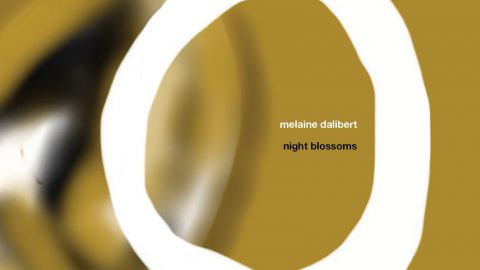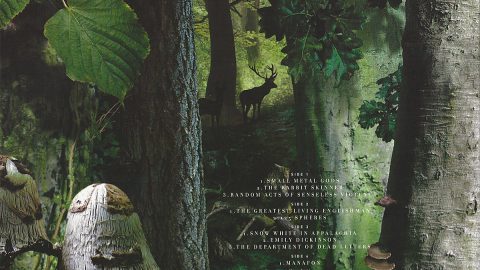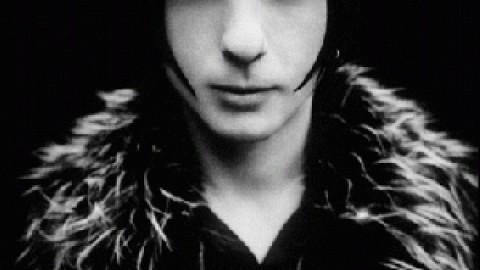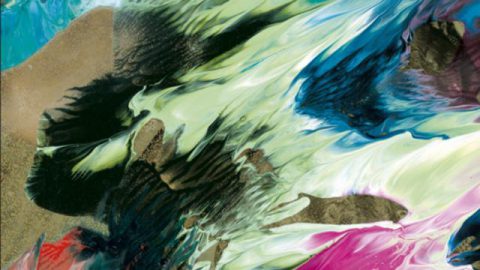
Orient Pop, La musica dello spirito (The Music of Spirit, Rom, Castelvecchi 2008) is an Italian book , where Leonardo Vittorio Arena deals with the Eastern and alchemical influences on his music and his thought. The book features a chapter on David Sylvian on this subject. Leonardo describes the Eastern and alchemical influences on David’s music and David reflects his thoughts as well. All was based on an extensive interview between the author and David. This interview is also included in the book (in Italian).
www.nonsense.splinder.com
myspace.com/lennylendon
www.switchpod.com/users/lenny/feed.xml
With kind permission of the author you can read exclusive on davidsylvian.net the translation by MariaCristina Buttignoni (Freccia)
5. ALCHEMY OF THE MOTHER’S SON: DAVID SYLVIAN
“I beseech you, my brothers, remain faithful to the earth, and do not believe those who speak to you of otherworldly hopes! Poison-mixers are they, whether they know it or not. Despisers of life are they, decaying and poisoned themselves, of whom the earth is weary: so let them go”
F. Nietzsche, Thus spoke Zarathustra
Japan doesn’t seems different from the androgynous groups of the end of the ‘70. The David Bowie style is evident in the singer, “the most beautiful man in the world”. But little by little the embarrassing quote leaves place to a spirituality’s atmosphere. With David Sylvian the group’s name gets new sense, referring to some aspects of Japanese aesthetics. The name is prophetic. Through a sophisticated stylistic research, Japan recreates the East’s ambient. In the meanwhile the air around is full of Zen Buddhism.
In Tin Drum the boy of Canton, one of the Sylvian’s incarnations, appears (Cantonese Boy). He works in the fields. He’s in Mao Red Army and he belongs to an anonymous crowd where individuality isn’t important. Red Army calls you / Red Army needs you. The boy is marching like everyone else. The song ends with hope: “Only young men broke the wall’’ Only the youth has the mystic inspiration to subvert the values and to make the Chinese revolution a cultural movement more than political.
The synthesized percussion dominates the main tracks and it creates Eastern sounds. The Sylvian’s voice -half Bowie and half Brian Ferry- brings out of reality: with its Western tonality it makes a nice contrast and it allows the fusion of two worlds miles away.
The same framework in Visions Of China. He sings of a strong and lean soldier with a blank mind and no idea of life. The Red China image is a stereotype, as Sylvian admits. It isn’t enough reporting the confusion of a nation because of the values imposed from above. It requires an individualism that gives meaning to life.
It’s curious: the group gives the best in oriental songs and its research moves elsewhere, in the same time the singer consolidates his leadership. Some atmospheres are resumed one last time in the instrumental Temple Of Dawn. The reiterated gong is a drone with bells. All sounds are assigned to digital synthesizers and only on the final the analogics comes, the Prophet 5 or the Oberheim. The timbre blending seems to seal the East and West fusion. The competent use of instruments and the new music allow the listener to access to the sunrise in a Buddhist monastery. The temple’s doors open to the world, leaving the sounds penetrate little by little, in the pregnant silence of the air that brings richer sounds in the final. Japan has never been so close in the tracks of a group that takes its name.
The album’s jewel is Ghosts. The protagonist sings of his identification and about how hard is becoming themselves. Only when the mind’s ghosts seemed to give him a truce, he finds uncomfortable; when he didn’t think to find obstacles he’s swept by the wind of terrifying images and he’s torn by devastating doubts. Sylvian seems to sing about himself or about a common situation in the spiritual research: the destination’s conquest is delayed for a fall or a regression.
Music and lyrics are in symbiosis. The Japan keyboardist admits he’s inspired by Stockhausen for a metal digital sound that looks like no other one instrument. The synthesizer’s timbre inspires melody, adapting to the suspension’s state where the singer’s psyche is. Everything is vague, but this is a strength.
” When my chance came to be king” sings Sylvian, alone more than ever. The easy life because of the youth’s lovers leaves the way to a new awareness, liberated from the ghosts. The protagonist feels there is something that he needs to know, but he has no place to go. Somewhere there is a meaning but he doesn’t know it, in the meanwhile the certainties go away. The confusion brings new developments with it.
Sylvian begins to have nothing to do with the group. The identification process requires to become a soloist. The new experience will change his image outside, deleting the lightness. Sylvian makes another album with Japan where he refers to the new needs (My New Career) and where he creates an alter ego: the night porter. Slipping into darkness, he seems to live in another dimension than the mortals. The instrumental beginning of Night Porter remands to the Satie’s Gymnopédie.
Sylvian leaves the group’s members. This makes a Sylvian’s qualitative leap as composer and singer. The atmosphere will become rarefied, and, for the first time, he’ll feel the need of improvisation. The black phase of his alchemical research is concluded with Japan. Sylvian will treasure the youth’s experience without denying anything. Ghosts will remain a reference point.
Brilliant Trees album’s title refers to the colors and splendor of the new stage of implementation, the albedo. It’s a transition’s period, with a lot of doubts and misgivings. Nevertheless, new chances are discovered. ” A better world lies in front of me/A sketch of life in the books I read/Then as I walk where heaven leads/Why am I the last to know? “. Sylvian doesn’t control the transformation. Pulling Punches ends with a hint to the lives gathered together ‘under new religion’.
The Ink in the Well sings of ‘a genius for living’. A new freedom, the excision from the constraints and the free animals run in fields. “Fire at will” comes frequently: the igneous rocks allusion shows a creative power ready to emerge.
In Nostalgia is evident the feature of the new production: the soft atmosphere of synthesizers where musicians improvise. Sylvian proposes a short text that indicates the awareness level. He describes his mind, crowded by voices and images. The Japan’s metaphors ar
e coming back on a more vague and fragmentated weaving. The words don’t pretend to impose themselves on music.
Such a setting is evoked in Weathered Wall, where Ryuichi Sakamoto plays piano and synthesizer. The other respectable guest is Jon Hassell, an oriental sounds lover. His trumpet remainds to the powerful bar of the elephants. The corroded wall by weather and the seasons. According to the aesthetics Japanese dictates, he retrieves everything that is sabi, the time’s patina: all the rotten, old and worthless things. Sylvian leaves the wall as he found it, that’s the metaphor of tears, a lost paradise to burning nostalgia.
The album expresses the meaning research, that sometimes seems to lead to a stagnant water, as in Backwaters. But the traveler knows the path doesn’t stop and the barrier is part of a design. Also this one has a short text that doesn’t interfere with the music. ” There are always other possibilities, This way and that.”
In a Bach contest managed by the Japanese musician Sakamoto, the Eastern part belongs to Hassell. Sylvian is for a lover, a woman or a higher nume, a god: “And there you stand/Making my life possible/Raise my hands up to heaven/But only you could know/My whole world stands in front of me
By the look in your eyes/By the look in your eyes/My whole life stretches in front of me/Reaching up like a flower/Leading my life back to the soil”. The beloved facilitates the Sylvian’s spiritual path. The presence makes doubts to the certainties and to the love of life: “Every plan I’ve made’s/Lost in the scheme of things”
This plant life has lights and shadows. The first ones seem overhanging in vivid hues. The albedo is partial, but a soft charm shows the artistic creation’s possibilities.
The next album, Gone To Earth, is twice as the Sylvian’s nature. A lot of material goes in two directions: vocal and instrumental. Only in Temple Of Dawn we can hear Japan style. This approach can be described as ambient, and has nothing to do with the poor new age. Sylvian experiments new music ways as soft electronic. The title might be a slang for fox hunting, “it’s gone to earth”, in the lair but it could allude to the singer’s unconscious where his ghosts live.
Brilliant Trees album alludes to the albedo, Gone To Earth to the nigredo: it replaces the darkness to light. A spiritual level can lead to a deep regression into the dark: the Ghosts theme. But a spiritual path isn’t linear. This isn’t regression, this’s growth, maturation.
The songs are drafts. The protagonists choose the possibility of a spiritual awakening. In Taking The Veil a girl decides to become sister. No reasons of her choice is explained, only her joyful dreams. The text is short, the music overflowing. Sylvian doesn’t judge, he looks at the decision that changes the existence’s meaning.
In Laughter And Forgetting the protagonist understand that only love is the true’s element. The soul needs light moments to put the thought in brackets, and that’s the because of the title. The protagonist of Before The Bullfight conceives the fight as a spiritual experience, a challenge against himself. Many Hemingway’s characters would have the same view. The singer isn’t hostile to the bull. Sylvian feels him on a deadly plaza de toros and this awareness pushes forward. He’s the animal to kill: he cannot escape the bullfight. He has all the information and the necessary skills, and the bull isn’t only his sexual impulse, as Freud says.
The bullfighter asks his wife to pray for him: release depends from the duel. The music’s carpets of the synthesizers are ripped by a basso continuo and scanned by an irregular battery. A melodic guitar overspreads the context. The atmosphere is “five in the evening,” in Garcia Lorca style, to give a spiritual value to the fight. The Kenny Wheeler flugelhr has a Spanish breath The verbose voice sings a inner struggle.
The title track Gone To Earth tries to justify this new nigredo and Sylvian becomes a martyr because of the research inside himself. “With a burning candle. A book of holy things. They’ll throw you up against the wall. Bind your hands with string”. He’s victim of circumstances that takes refuge in the rabbits lair. Sylvian wants to return to earth to avoid a certain feeling, an empty competition. Times of Japan are far from him. He has a own personality and the identifications with Bowie and Ferry ended. Each act involves dangers and difficulties: It’s the sense of the new stadium to black.
In the three last vocal songs the liquid element is the protagonist. Land moves to water in a spirit’s rebirth process that confronts the nature’s elements. The Wave’s protagonist experiences all kinds of dreams. He’s supported by divine love and he refuges under trees in the rain. Interior light cannot burn out and so he will feel ready to plow the sea inside. He and his lover become a wave. It isn’t a simple passion: the protagonist is ready to tear the soul for her. The distorted Fripp’s guitar supports voice. The phrasing is trying to replicate the wave’s liquidity. All the instruments seems to insist on a water dimension. In Sufi poetry the lovers and the waves fusion has spiritual meaning.
River Man evokes another spiritual metaphor: river’s crossing. Sylvian wish the other side: only there he will be free. He never stops running and falling but he rises again and again without losing the hope. The ferryman will help him to overcome the roughness. The same Buddhism’s metaphor: the awakening is the land to conquest, the Nirvana landfall. Bodhisattva is already enlightened and he cares the human salvation. Sylvian calls him Holyman. ” Now, should you ask me to come home
To wake up from the sleep/Like a boat inside a storm/Is there no hope for me? “. He’s afraid to be considered immature, and he fears Bodhisattva lives him alone.
The liberation may coincide with a love. “Run with me holyman/But when I reach out
/I find I’m standing right beside her/Now we’re living/Blessed with all the thunder in the world”. Novalis, the German poet-philosopher who found the face of his girlfriend behind the veil of the Virgin of Sais. No route would be complete without love. In perfect symbiosis with the percussion and the liquid carpet of the synthesizers, the riff of the bass shows the sacredness and the flow of water.
The last trilogy’s song, Silver Moon, is the albedo’s representation. Everything here is calm and the structure is almost conventional. “Every doubt that holds you here/Will find their own way out” The chorus introduces a different atmosphere. We should know that even the Silver Moon could dissolve. This makes a constructive desperation: no one believes to anyone. In the knowledge’s way we have to know all the doors are closing, and every lesson is ineffective. In the words of Krishnamurti: “We reached the point where I say to abandon the all known, because it doesn’t take me anywhere.” Sylvian seems in the same condition, but he isn’t depressed. He knows he suspended all conviction, and this gives him a nice lightness. The crossing of the track has no meaning: there isn’t a boat able to navigate the river and swimming is impossible. You cannot do anything: the highest spiritual awareness.
Which emotions makes the instrumental section of the album? In The Healing Place Joseph Beuys interprets a short hope’s text showing a new era. ” That has to be the age of overcome/The systems which are on the ceiling/Which are on the run to destroy/Human kind’s nation/Human kind’s inwardness/Human kind’s ability/What for me is a true capital/And which is a side effect/Last not least destroys the nature and us”. Bill Nelson and Sylvian on the guitars: Bill plays a solo and Sylvian a hypnotic riff. The guests solos -including Fripp- is measured. They are pieces for meditation where Sylvian plays as keyboardist. The Celtic and Druid alchemical symbols of the cover seems to take life ‘cause of an earth’s religion. The last song is Upon this Earth. Fripp plays arabesques and the voice is sampled by J. Bennett, one of the greatest Gurdjieff’s students. Sylvian and Fripp admire him, it isn’t a random choice. The nigredo leaves place to the awareness.The third Sylvian’s album (the best for someone) has the merits of an initiation. It isn’t only a stage but the whole path of the spirit. It marks a watershed showing a new energy. It’s the way to clarify the direction: Secrets of the Beehive. Sylvian takes the bee as a stage’s symbol. It’s well known for its hard work and the discipline. The bee’s community was used as models by the monastic Western and Eastern orders, as sun-god in ancient Egypt and pollen as juice of knowledge in India. Novalis compares the bee’s flight from a bloom to another to reincarnation, the soul’s passages from experience to another, from one body to another. The Eleusi’s priestesses were called Bees.
In the Greek mysteries the bee was icon of resurrection, disappearing in winter to return in spring, infusing new life to nature with his honey. Unconsciously, may be Sylvian takes his inspiration from Greece, as well shown on the track Orpheus. It’s the resurrection’s album after the attempts of nigredo. Perfection needs completeness, and so the negative sides too. Orpheus is the symbol of an ambivalence.
Orpheus is the archetype that stimulates all Sylvian’s identification. The musician seduces all the creatures (organic and inorganic, men and divinities) with his harp and his voice. This ability gives him a magic aura. He convinces the divinities to return Euridice from the deaths reign. However, Orpheus isn’t able to show all his talent. During the journey into hell, he neglects the divine commandment to contemplate the Euridice’s face. All is lost forever, the woman returns to Ade. And the desperate Orpheus will be devoured by Thrace’s women. Nevertheless, his greatness is intact. It’s considered the Eleusi mysteries founder, and the first Christians compared him to Jesus Christ. He has the ability to triumph over the nature’s forces represented by Dionysus or Satan. Orpheus is bound to human weakness and to an ineradicable egotism. It’s condemned to be imperfect.
In the Orpheus track Sylvian’s sentiments aren’t different. He’s in a rocky earth where the wind whips. The description remands to the Polignoto’s work (in the paint Orpheus sits on a hill). Sylvian is the victim of own anguish and he doesn’t know how to resolve the conflict with its ghosts: surrendering or rejecting them? The Ghosts theme seems current.
Even Sylvian, as Orpheus, struggles between darkness and shadowy light. Orpheus sleeps near him and neither cares conventions. Sylvian doesn’t deny to pursue the research of aesthetic beauty. A stronghold of pleasures fascinates him.
Where does he direct his research? Sylvian seems to replicate in the chorus. “Tell me, I’ve still a lot to learn/Understand, these fires never stop/Believe me, when this joke is tired of laughing/I will hear the promise of my Orpheus sing” Sylvian feels in the Way, but he doesn’t know which is the right direction. It isn’t the uncertainty of Gone To Earth but there isn’t definitive paths. The hints to the Eleusi’s mysteries is the best that we can grant: Orpheus promises a bright future. Sylvian will be refunded his Euridice without mistakes: he doesn’t look to the past, but she watches the present becoming future.
Orpheus is perhaps the most famous song of Sylvian. The music structure is attractive, not complex. David indulges the usual embellishments of the voice in the chorus to express the ambiguity of the character. The Sakamoto’s piano speaks of the pentatonic scale and of oriental music. This creates a nice contrast with the rhythm section. There is a long pause before the second stanza and the song seems to finish with the Orpheus’s death. The instrumental interlude isn’t random. In the end we feel real calmed. Orpheus rises in the mysteries. The same can happen to Sylvian, if he will identify the most appropriate path.
Orpheus is compared to Christ, as shown by Forbidden Colors, from the bonus of the CD edition. Sylvian takes the title from a Mishima novel, Sakamoto had the music from the Fury’s soundtrack (original title: Merry Christmas Mr. Lawrence) for the director Nagisa Oshima. Sylvian overlaps the melody with the words.
The central archetype is Jesus Christ. David discovers bloody stigmata on his hands. ” thought all I needed was to believe/Here am I, a lifetime away from you” The Christ blood blends with the beat of the heart. Sylvian tries a deep love with prohibited colors. The research shows a new location. Sylvian doesn’t accede to Christianity. He is attracted by Jesus’s love born in the suffering. David admits to being able to confront the burning soul’s feelings.
What’s the connection between the song and the Christ archetype? Why does the artist refer to Mishima? Perhaps he wanted to refer to another book of the writer, Confessions of a Mask, where the picture of the St. Sebastian martyrdom stimulates the protagonist’s conversion. The blood and Christianity are together. Even if the figure of the saint interests Mishima because of the homosexuality’s issue.
Secrets of the Beehive closes with an appeal to the love born from pain. Jesus as Orpheus builds the resurrection’s basis. With good peace of many fans, the inclusion of Forbidden Colors in the album isn’t unwarranted: the song blends with others. “My life believes in you once again ” – perhaps there is a guide, and the spirit’s path cannot base on doubt and uncertainty. “Let the happiness in” translates the feelings associated with this faith.
With Sylvian’s serenity a reunion with Japan could be possible. The idea had been postponed for remote disagreement with the frenetic Mick Karn, the bass, the ‘eternal number two’ of the group. Sylvian shows his new awareness allows the collective work. Two alternatives remain closed: it isn’t possible using of the old name and Sylvian cannot take the fatherhood accreditation. The alchemical is Rain Tree Crow, “the raven’s rainforest, which gives the title to the CD.
The raven is a name closely to all the group’s members. It’s a loneliness symbol and it designates the splendid isolation of the superior in spirit. It combines the germination and fertilization processes. There’s only a Mayan word for “vegetation” and “Rain”, they are similar concepts. The crow’s choice alludes to a physical and spiritual gestation. It’s a good omen. In Japan the crow takes light in the universe, and it’s the kami’s messenger, the divine spirits of family and the symbol of Shintoism. The symbolism of the raven is full of contradictions: the bird protects men from death, but it also announces it, it disturbs but serves as a guide. The same contradictions are in the group, and the new name puts the light on them.
Without doubt, it is another group. According to Sylvian, all components are completed and now they play the improvisation as the singer suggested. In all the songs there’s an autumn’s atmosphere, with a sky full of rain. Paradoxically, this melancholy results in a albedo more than a nigredo. Both of them belongs to the raven.
Songs as Ev
ery Color You Are and the title track show how each tone color is possible. The black of the crow is shining, it’s the the opposites intermingling: light and dark. Each member occupies his own space without removing it to others. The same is for Sylvian. His lyrics are essential. The album has not been followed. Sylvian, however, could move to new experiences, once terminated the relationship with his friends from the past.
The implementation of another project has a background. The King Crimson looks for a singer, and the choice is on Sylvian, who declines the invitation. But the proposal fell on deaf ears: the begin of the collaboration between Fripp and Sylvian. The album is The First Day: the creation. The Italian group ‘Banco del Mutuo Soccorso’ was already oriented on Darwin’s concept, where “creation has created for itself.” Sylvian and Fripp expose it in God’s Monkey.
” One push/You fall in/Born in darkness/Built on shame/And hurting/Filled with silence/Filled with silence/And stars/Stars/Stars/Find the ladder/Climb the ladder/To God’s monkey ”
According to Nietzsche, man is a stretched cable over an abyss, ending with the animal, the monkey, and the Übermensch. He has to be a funambule: he can break his bones and fall to the ground or he can progress. The same happens to the sons protagonist: from monkey to God. God, the transcendence, appears to the summit of the whole process. Sylvian and Fripp know it’s necessary to discover the way to rise. In illo tempore, a different fish from the others, tired of water and it went on the mainland with fatigue. In the beginning inhaling the air was difficult, but then the fish came to the man because of the evolution. Now it’s time to move from man to Übermensch, God’s monkey. It’s an alchemical transformation.
‘ 20th Century Dreaming’, Shaman’s Song is shamanism in modern version. This religion is perhaps the matrix of all the others, and it represents the first known form of human spirituality, from Siberia to Mongolia from China to Africa. There is a substrate is common. Shaman is often a mentally disturbed man going in trance to be a mediator. So he can heal all kinds of diseases: physical, mental or spiritual.
This cycle of death-rebirth is found in nearly all world religions: Christianity as well as in Buddhism, in Induism and in Taoism, and so forth. Transit by Orpheus-Christ to shamanism is natural for Sylvian, almost obligatory. The shaman is the prototype of these figures and Sylvian identifies himself with the shaman.
The music plays the shamanic trance. The journey begins with the fresh air of the morning, with a frenetic, irregular and hard rhythm. Sylvian awakes to the sound of the rain and he goes to the crossroads where divides the paths of men and spirits, ‘where value is meaningless’. He come back to the shaman, asking him what has he done with his faith in justice, in hope and in happiness. The answer is that everything has vanished into thin air. Fripp could be one of the shaman’s incarnations, it’s his photo to be with the lyrics in the booklet. Sylvian intones the chorus: “Social, economical, spiritual
I’m moving to the house of love”.
Then the shaman becomes Sylvian himself. He celebrates the sacrifice of fire, food and water.
‘Gonna take a course of action/To restore my sight/’til the heart of motivation/Is filled with a golden light’. The shaman searches in his heart, and he discovers the rescue’s spirits. Also this song comes from ’Ghosts’. But time is gone and Sylvian seems more secure in the fight against the darkness.
Little by little the atmosphere is changing. The shaman takes the fetal position when he’s dreaming, closer to the spirits of the universe. Everything becomes more mild, evanescent. In the song Fripp is the boss and he presents a hard and harsh rock. In advanced shamanic trance, David returns to more congenial and delicate contexts. He sings of hope: “As the river runs/Tumbles and turns/You know you shouldn’t stay/Or play the game again/But it could be different this time/You may win”. After the storm comes back the peace.
The last song, Bringing Down The Light, proposes a serenity state (as Sylvian feels at that time). The collaboration with Fripp is exciting but it’ll be the only one, as with Japan. Sylvian feels to proceed alone.
The life’s circumstances often change the direction of an artist. Sylvian married before the album with Fripp. Igrid Chavez, the wife, is a singer too. Sylvian is more interested in women’s world because of this love story, maybe. His songs feels the Mother Goddess mysticism now. In Indian culture the female deity represents the cosmic energy. She is often represented with Shiva, but she has an autonomous and decisive role. Mahadevi (the great goddess “) is identified with many figures of the Hindu Pantheon, including Parvati and Kali. India is a practiced ancient times religion. It’s venerates a fertility’s goddess, a natural forces symbol representing every aspect of women: the mother, the virgin, the virtuous and the seductive.
Sylvian draws to these doctrines through the female guru’s mediation. In Dead Bees On A Cake Shri Ma is the soloist’s voice sometimes, and he dedicates a song to the most famous Mother Meera. Moreover, he defines Shri Mata Amritanandamayi as his spiritual guide.
‘I Surrender’ evokes the new atmosphere since the title. The abandonment and the sensitivity are feminine qualities and Sylvian is discovering his feminine, the Jung’s soul. The process of identification goes on. Many cults are influenced by the female Islamic mysticism: the word Islam means abandonment. The Sylvian’s personality will be enriched. ” I opened up the pathway of the heart The flowers died embittered from the start
That night I crossed the bridge of sighs and I surrendered ” Says that they looked back, and he worried scorto a boy, suffering, namely himself, who now sinking in joy. The whole world seems part of his feelings: “Tonight the stars are lined up / and I have surrendered.” A suddenly he felt the women’s presence: “My mother cries beneath a southern sky and I surrender ”
He stops the meaning’s research when he sees the light in the Woman’s eyes. It can burn all books. The heaven opens up the moon and it shows there’s only the Mother. Sylvian discovers the Sakamoto’s fender rhodes. It’s an electric piano, evoking jazz and with a hybrid and androgynous delicatess.
The next song takes its name from the dobro, and it was written by Bill Frisell. Sylvian breathes the Eastern air. The David’s voice is more persuasive because of the abundant vocal effects. When he intones ” And it rained on my house /All summer ” it seems to be in India in the rainy season.
The fourth song takes its name from the Mother Meera European Union residence: the German village of Thalheim. The woman is near to Sri Aurobindo, one of the greatest Masters of 900. Her maiden name was Kamala, and she arrived in the village of Pondicherry, headquarters of the Indian mystic man after the Mère’s death. Kamala meets both in a dream. The two mystics notice the direction, to continue their work. She chooses the name of Mother Meera ( “miracle”). She receives Overmind, the cosmic consciousness, by Aurobindo and the Mèr
e. This will enables her to bless all the visitors.
Meera moves to Europe and she welcomes large crowds in a modest house.
In Thalheim Sylvian confesses to Mother Meera: “through the darkness you still provide The sweetest love I’ve ever known”. David finds peace on the quiet waters of the Rhine.
Shri Ma, another spiritual guru, sings in ‘Praise’. Sylvian’s guitar celebrates love and goddess. It’s pure Indian music with ambient guitar’s interventions: a world’s fusion. ‘All Of My Mother’s Names’ takes inspiration by the Mother Goddess. The context reminds Bitches Brew, the album of Miles Davis conversion to jazz-rock. The India’s presence is massive in almost all the Sylvian’s CD.
Talvin Singh plays the tabla (Indian percussion) in Krishna Blue. Krishna is an avatar, the Vishnu incarnation. The devotees give him the devotion (bhakti). Krishna means “black”, but here it takes another color to the mix with the river’s waters. “Colour the river I swim back to you/Krishna blue ”
” You open the gates/The madness begins”, the text could refer to cakra, wheels or energy located inside the body. Krishna was famous for its joker’s nature. Represents the orgy and the frenzy, the madness. The song is pervaded by Indian flavor. More than Krishna, the Great Mother is the subject: “In the/silent forest/And the brilliant red/And through the stream of words/There comes a sound/And I/listen/Child like/To her voice/Spellbound’’
This spirituality unfolds in many directions and not only in Indian mysticism. Sometimes the reference is ambivalent as in Alphabet Angel, where the word and the sound relate to a angelic creatures’s circle. The Cabal or some brahmanich schools might be called into question. “The longest day is over/The longest day/My alphabet angels come out to play”. Pollen Path refers to the American natives, but it’s only an information, the excuse to enjoy a sublime song.
Wanderlust expresses the joy of spiritual pilgrimage. It speaks of grace and light on the road. The itinerary is still alchemical. It despites the India new direction, Gone To Earth themes return. The image of the Midnight Sun means the coincidence of opposites. The dark meets light. We move from one to another. The midnight sun is for Sylvian only a negative black star. “The darkness is frightening
And love is denied/They’ve stolen the moon/God only knows why”. The stars have lost their glow. The moon was replaced by black midnight sun. Is it a values decline? Sylvian doesn’t respond There are no definitive interpretations to certain metaphors.
This is perhaps the most spiritual Sylvian’s album, but not the most pleasant. Even if a repeated listening reveals different thicknesses.
We can find the Indian mysticism in Camphor too, an old songs compilation published to close the contract with the record company. There is a new area, an inedited sung in Sanskrit: The Song Which Gives The Key To Perfection (Siddha kunjika stotram). This isn’t an exotism: Sylvian is still the only credible rock singer of Indian music. Shiva turns to the Mother Goddess (devi). The track may be interpreted as a mantra, a magic’s series to calm the heart and the mind. The song merges with meditation in the raga style. ‘Kunjika patha matrena Durga phalam labhet / ati guhyataram you devanamapi durlabham’. Sylvian sings the women’s superiority, but it’s something that embedd the opposite inside. Anyone sings the anthem owns key to achieve perfection (siddha).
Every song’s syllable contains the secret of liberation. Despite the loyalty to Indian music, this is a typical Sylvian’s interpretation. The song reveals a nature’s ritual. It’s a hymn to the sacred. Sylvian serves as Brahma, the sacrifice’s celebrant. The song is the highest peak of the spirituality of Sylvian. The next album, Blemish, is produced by himself for Samadhi Sound, his new record company. The word in Sanskrit means “achieving sum”: a state where you feel the creation’s unity. The album doesn’t offer many pearls. Even the spiritual element is highlighted. Also here he alludes to the alchemical transformations. The title track ends this way: “like blemishes upon the skin / truth sets in’’. The album is a tribute to authenticity. In How Little We Need To Be Happy he sings the need to retrieve the correct path. (recalling to the Mother). The past spirituality is submerged by a lot of personal problems. That seems the album focus. “And you my girl/Did I forget to sing?/You, brimming with life and with joy/And curiosity/And the lights won’t go out/The stars refuse to dim/And everything goes on but not as before’. Even the regret for a lost love can be a stage of research. Even the banality of daily life can be made from a metamorphosis: even shopping (Late Night Shopping). Or everything shows the adrift of an artist. Each interpretation is lawful. But Sylvian warns: “the mind’s divisive / but the heart knows better’’.
Electronics wasn’t so important as in Blemish. The music’s innovation isn’t reflected in a personal evolution. Sylvian chooses the Fennesz guitarist style (the new electronics guru). They are together in the last song, A Fire In The Forest. David makes a music and life’s balance sheet. “There is always sunshine/Above the grey sky/I will try to find it/Yes, I will try/My mind has been wandering/I hardly noticed/It’s running on its own steam/I let it go”. The fire in the forest is an energy explosion inside. It will eradicate some tree, some character’s stretch. Sylvian shows his attitude: When things are overwhelming / I let them be’’.
It’s a solitary direction as in the live concerts: Sylvian usually enthrones on stage with his guitar, the other musicians are invisible and unobtrusive. The acoustic and electronic dimensions: two souls trying to live together thanking the voice. The Sylvian’s partner in Blemish is the most famous performer in the whole world for improvised music: the guitarist Derek Bailey, who died recently. It seems Bailey plays another song in parallel, as his guitar was overdubbed with polite nonchalance. He improvises, Sylvian follows the pattern. It’s an alchemical fusion, the meeting of two different mentalities. Which partner would be better than a non-partner? Sylvian’s loneliness is saved.The artist’s face on the cover doesn’t described “the most beautiful man in the world”. It belongs to an old troll, stigmatized by suffering. The cap on the forehead, inquiring glance, a little bit of barb and mustache. On the cover inside he pushes a cart into the snow: an everyday picture hiding underground dilemmas.
Even the album title is emblematic. Sylvian known him as imperfect, but only in this way he can proceed to completeness. The blemish is an illusory configuration as a cloud. Anyone sees what he wants, as in the Roschach’s tests. Blemish doesn’t feature always bad and negative. It can become positive. It indicates the time’s passage, as Sylvian does on the cover. It’s better giving value to the blemish instead of removing it. As a first material, in the alchemists slang. The Japanese aesthetic enhances the patina of time. It’s like a Sylvian’s return to his roots, to the Far East of Japan.
Nobody knows, perhaps even the same David, which spiritual doctrine will accompany him along the way. The pleasure of the implications discovering of a troubled, enigmatic but serene artist will goes to the listener. The contradiction is a creativity
’s source, as Sylvian showed us.
Many thanks to:













